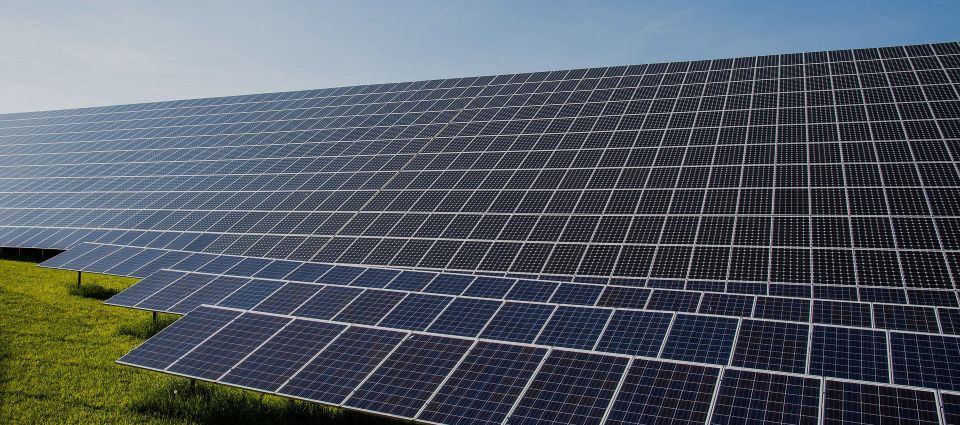
ECONOMICAL AND ENVIRONMENTALLY FRIENDLY SOLUTION IN AGRICULTURAL IRRIGATION: SOLAR ENERGY POWER PLANT
In the face of the cold weather affecting the entire country, I would like to extend my warmest greetings to my valued readers and wish them a pleasant and enjoyable week. Dear readers, this week I would like to discuss the impact of energy expenses on costs in the agricultural sector, the importance of green energy transformation in agriculture, and most importantly, the public policies that this energy transformation should be carried out on a macro scale, as well as humble recommendations on combating cost increases in agriculture. With developing technologies and increasing population, the demand for energy in the whole world is increasing day by day. In order to create a cheap, safe and sufficient amount of energy supply to meet this increase in demand, creating environmental, economic and social policies is of great importance in the energy policies of states. The energy produced in our country, as well as many other countries in the world, is largely met by fossil fuels. Fossil fuel use accelerates carbon emissions and climate change on a global scale, and negatively affects the economies of countries dependent on foreign energy, such as Türkiye. I always express that the use of renewable energy resources in all areas of life should be a priority among our country policies in order to create a supply that will meet the energy demand economically and ecologically and to reduce external dependency on energy. Dear readers, with the increasing energy costs, the high price increases we encounter in every area of life, from needle to thread, have become increasingly difficult to overcome, and the burden of inflation has begun to fall on every segment of society. The high price increases experienced in energy, like many sectors that constitute the dynamics of economy and social life, have increased the input costs of farmers in the agricultural sector, limiting their production opportunities, leading to agricultural production losses and high food inflation. Other input costs, especially transportation, have also been effective in this high food inflation process. In this article, I would like to talk more about the importance of providing cheaper electricity to farmers and access to cheaper agricultural water in the management of sustainable agricultural policies. While doing research on similar topics, I came across the Agricultural Irrigation Group Working Document report prepared by the Ministry of Agriculture and Forestry and reviewed the pages in the report regarding the use of alternative energy sources to reduce energy costs in agricultural irrigation. I would like to share a paragraph from the report in the same way: ''According to 2020 data, the irrigation rate in the areas opened to irrigation throughout the country was 69% and 31% of the areas opened to irrigation could not be irrigated for various reasons. In particular, due to the high cost of agricultural products to be produced due to high energy input costs, the irrigation rate in promoted irrigation areas could only be 53%.'' With this determination, we see that unfortunately, only half of the promoted irrigation areas can be irrigated due to the increase in energy costs creating an increase in the cost of agricultural products. It is extremely sad and thought-provoking… In agricultural production, where climate change threatens our lives and quality agricultural lands are likely to decrease, the lack of necessary water due to energy costs reveals the seriousness of this problem even more. If we solve this problem with both environmentally friendly and economical solutions by generating the energy required to provide cheaper water to our farmers with Solar Energy Plants that we can efficiently use almost all of our country's geography, wouldn't we gain a lot as a country? Our country is quite lucky in terms of renewable energy resources potential, and if the Solar Energy potential is evaluated within this resource diversity and richness, it is extremely important for agricultural development to meet the energy needs of the promoted irrigation facilities with Solar Energy Plants due to the long hours of sunshine in many regions of our country, the relatively lower initial investment costs and operation-maintenance costs compared to other resources, and the shorter bureaucratic permit and commissioning processes during installation. In order to benefit more from irrigation facilities in every geography of our country and create sustainable development, reducing the energy and operating costs of these facilities, increasing irrigable lands, providing optimum water to these lands and obtaining more yield from agricultural areas should be at the forefront of our country's agricultural policies. Otherwise, agricultural policies that do not ease the pockets of farmers will make it impossible for citizens to access cheap, sufficient and healthy food with the effects of the climate crisis. With the hope of a more productive future in our fertile lands with the unlimited energy of the sun... See you next week, stay healthy...
Sidar Anil Ozalp
